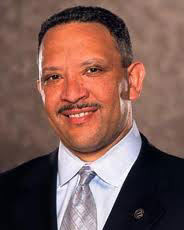
To Be Equal
Whitney Young: Mr. Inside
By Marc Morial
“I am not anxious to be the loudest voice or the most popular. But I would like to think that at a crucial moment, I was an effective voice of the voiceless, an effective hope of the hopeless.” Whitney M. Young, Jr.
Most students of civil rights history know that 2013 marks the 150th anniversary of the Emancipation Proclamation and the 50th anniversary of the historic 1963 March on Washington. But this year also marks the 50th anniversary of the signature newspaper column of the National Urban League. This very column, “To Be Equal,” was started in 1963 as “the Voice of Black America” by one of the civil rights movement’s most effective, if lesser known champions, former National Urban League President, Whitney M. Young, Jr.
At the height of the 1960s Civil Rights Movement, Whitney Young took the fight for equal opportunity from the pulpits and street corners to the board rooms and corner offices of corporate America. Forging allies from Wall Street to the Oval Office, Whitney Young’s battle for economic justice and inclusion laid the foundation for an upwardly mobile Black middle class that is still rising today.
While those of us in the Urban League family have always celebrated the unique role Whitney Young played in the movement, his story has rarely been told to a national audience – until now. On February 18th, America got a rare in-depth look at the extraordinary life of Whitney Young through an hour-long documentary, “The Powerbroker: Whitney Young’s Fight for Civil Rights” premiers on PBS (check your local listing for repeat showings).
Years in the making, the film, made possible by Emmy Award executive producer, and Whitney Young’s niece, Bonnie Boswell Hamilton, traces Young’s journey from his segregated childhood in 1920’s rural Kentucky to his national prominence as president of the National Urban League from 1961-71. The film features rare archival footage and interviews with such luminaries as Vernon Jordan, Henry Louis Gates, Dorothy Height, John Hope Franklin and Ossie Davis.
Though recognized as a major civil rights leader and one of the organizers of the 1963 March on Washington, Whitney Young’s strategy of engaging political and corporate leaders as partners in the struggle for economic justice was met with opposition by many Whites and skepticism by more militant Blacks. Despite these challenges, Whitney Young turned the rhetoric of the Civil Rights Movement into jobs and economic opportunity for African Americans. In addition to sitting down with corporate titans, he was a trusted advisor to three presidents – John F. Kennedy, Lyndon B. Johnson and Richard M. Nixon. Johnson used Young’s “Domestic Marshall Plan” as the basis for his “War on Poverty.” And Nixon delivered the eulogy at Young’s 1971 funeral.
Noted Princeton historian and Whitney Young biographer, Nancy Weiss Malkiel once called, Young “the inside man of the Black revolution.” In her 1989 book, Whitney M. Young Jr. and the Struggle for Civil Rights, Malkiel wrote that Young “spent most of his adult life in the white world, transcending barriers of race, wealth and social standing to advance the welfare of Black Americans. His goal was to gain access for Blacks to good jobs, education, housing, health care and social services. His tactics were reason, persuasion and negotiation.” Whitney Young’s story deserves the national exposure PBS is giving it.
